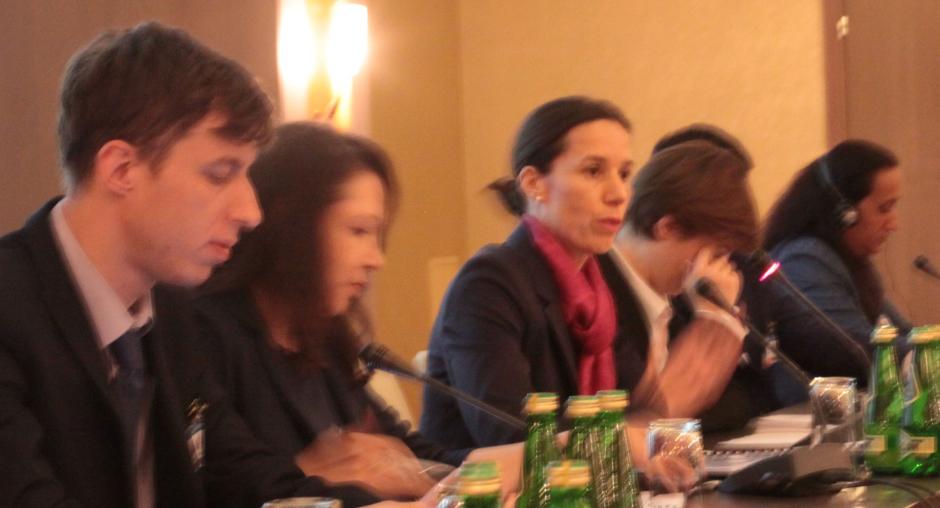Displacement by conflict in Ukraine adding to difficulties for Roma there, says new OSCE/ODIHR report

Many Roma in Ukraine are facing even greater challenges due to the current conflict in the country, says a report released by the OSCE Office for Democratic Institutions and Human Rights (ODIHR) on 29 September 2014 during the Human Dimension Implementation Meeting in Warsaw.
The Situation Assessment Report on Roma in Ukraine highlights the difficult situation for Roma living in Ukraine, due to a lack of birth certificates or residence registration, as well as an overall negative perception of the community in society. This situation has worsened for those who have been displaced as a result of the conflict in the east.
“The recent political and security developments in Ukraine have clearly had a negative impact on the situation of Roma in the country,” said Mirjam Karoly, ODIHR Senior Adviser on Roma and Sinti Issues. “They have experienced threats and violence, and there are reports of them being pressured to support the separatists in the East.”
Participants stressed, in particular, the difficult situation of Roma women, who face multiple forms of discrimination in all aspects of life.
“In the current conflict in Ukraine, Roma women are overlooked and remain invisible, and this not only worsens their situation during the current crisis, but will continue to have a negative impact through the whole conflict cycle, including the post-crisis peacemaking and reconciliation process,” said Zola Kondur, Vice-President of Chiricli, the Roma Women’s Fund.
Chiricli mapped the situation of Roma throughout the country with support of local Roma mediators. At the event, representatives from the Kharkiv and Transkapathia regions presented the results of the study.
The Ukrainian government’s National Strategy and the Action Plan on Roma Integration through 2020 was also discussed by participants. While many welcomed the documents, they also raised concern that they do not address a number of important issues, including the lack of civil registration documents among Roma, poor housing conditions and the lack of access to quality education, as well as the need to build on positive relations between police and Roma.
The 2003 OSCE Action Plan on Improving the Situation of Roma and Sinti within the OSCE Area tasks ODIHR to assume a proactive role in analysing measures undertaken by participating States to implement the plan, including in crisis and post-crisis situations.
